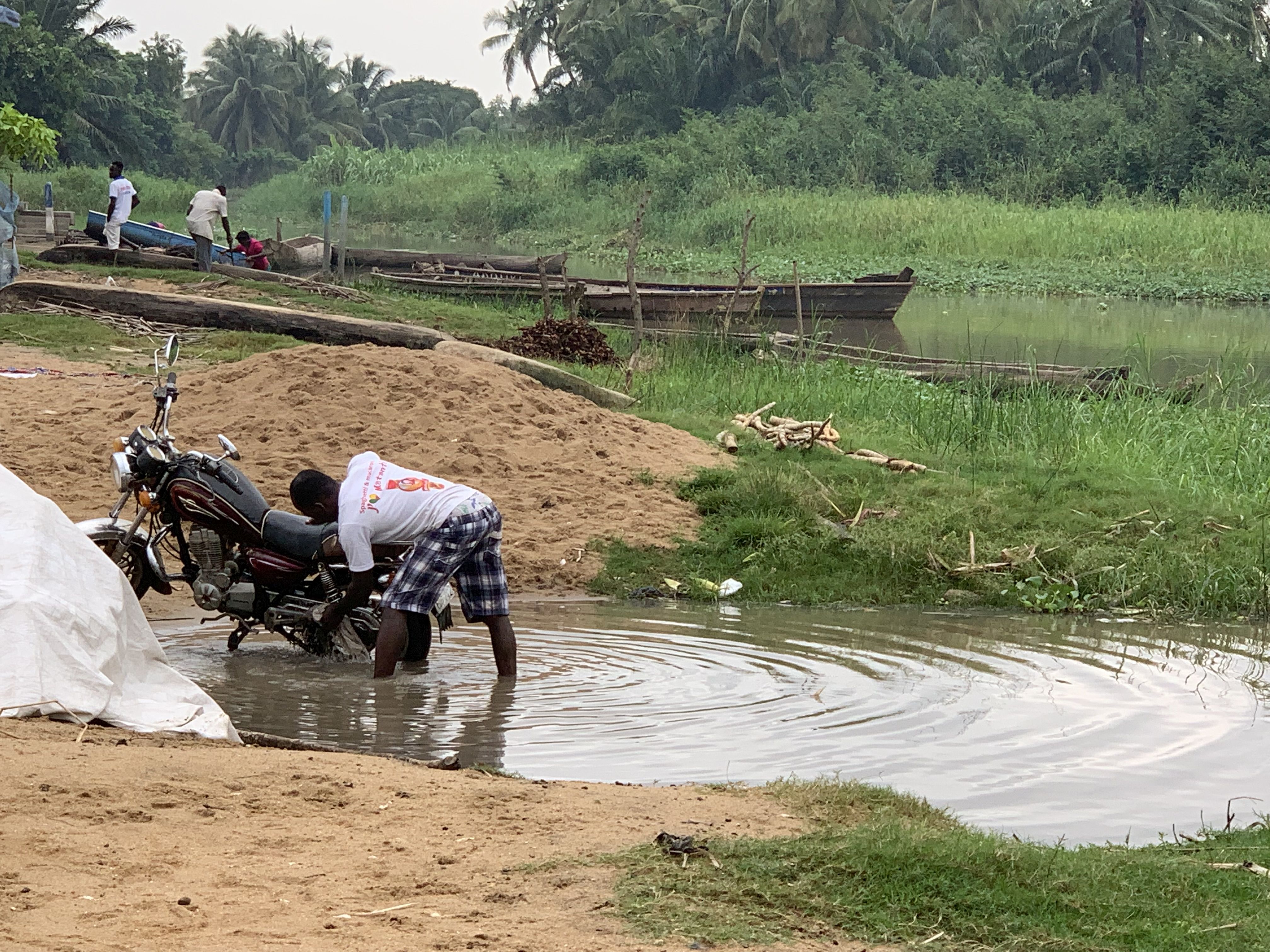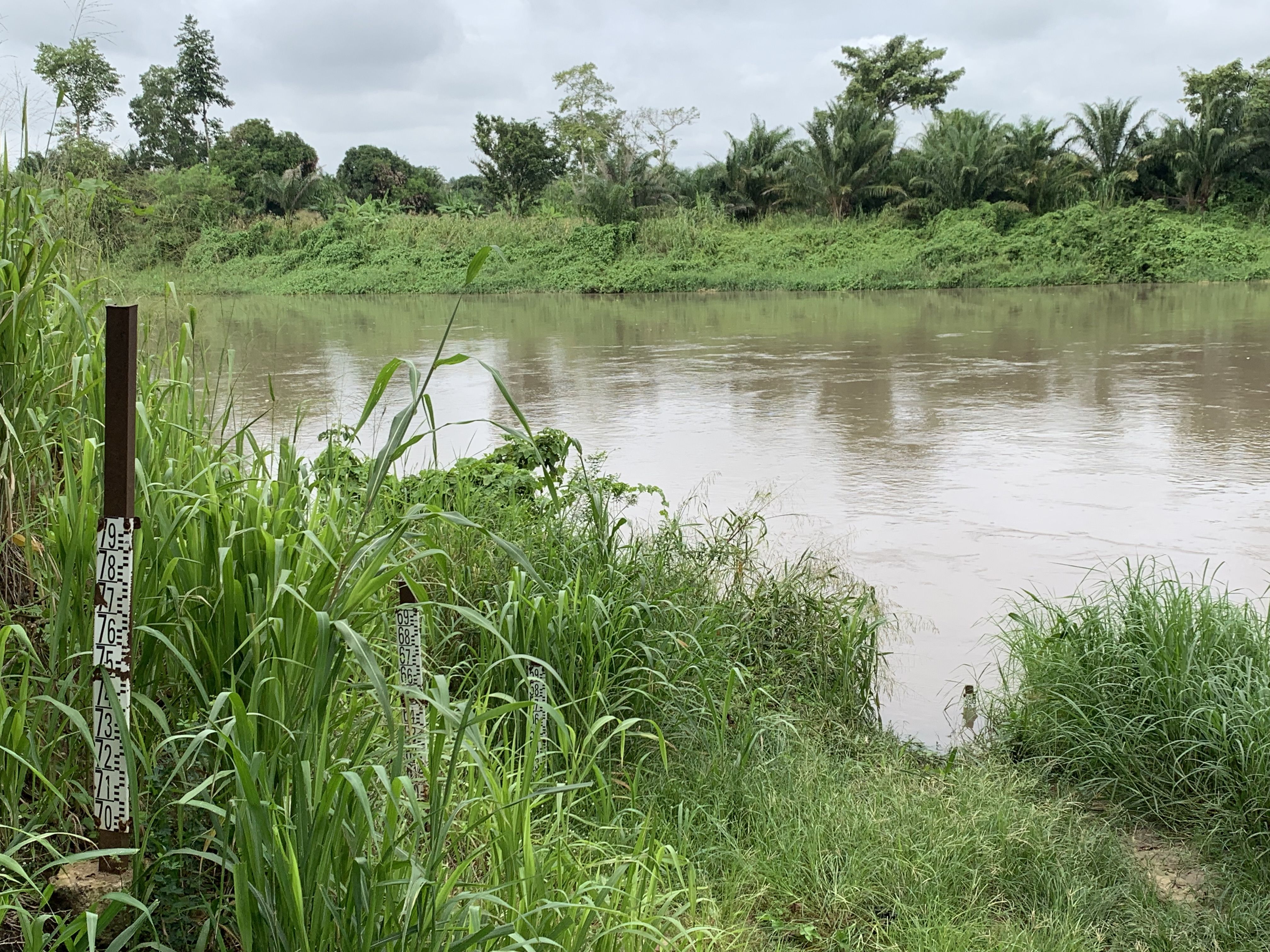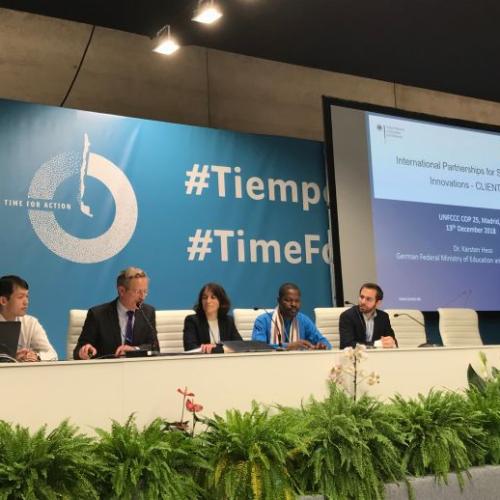

Life on land
Climate action
Sustainable cities and communities
Partnerships for the goals
Clean water and sanitation
Coordinator: United Nations University
Contact Person: Dr. Yvonne Walz
Address: Platz der Vereinten Nationen 1, 53113 Bonn
Phone: +49 228 815-0232
Email: walz(at)ehs.unu.edu
Project partners
- University of Bonn - Working group Eco-Hydrology and Water Resources Management
- University of Bonn - Center for Development Research (ZEF);
- Björnsen Consulting Engineers GmbH (BCE)
- University of Bayreuth - Department of Intercultural German Studies
- Munich Climate Insurance Initiative (MCII)
Project partners in Benin and Togo
- WASCAL, Accra (Ghana)
- University of Lomé (Togo)
- University of Abomey-Calavi (Benin)
- Ministry of Environment and Forest Resources in Togo, Lomé
- Ministry of Living Environment and Sustainable Development in Benin, Cotonou
Implementation of Climate-sensitive Adaptation Strategies to Reduce the Flood Risk in the Catchment Area of the Cross-border Lower Mono River
Floods pose a great risk to local populations. This is also the case in the cross-border Lower Mono River Basin in Benin and Togo. In order to develop and implement adaptation strategies to existing and future flood risk, information is required on possible flood scenarios, exposures, vulnerabilities and the coping capacities of humans and the environment, which is currently not available. The German-African consortium CLIMAFRI is therefore developing a river basin flood information system and associated adaptation strategies for the region.
Adaptation to flood risk
Heavy rains and resulting flood events are natural hazards that have devastating consequences on human life and livelihoods. This is also the case in the Mono River Basin in Benin and Togo. Overuse of natural resources, incomplete knowledge about the interrelations between flood effects as well as a lack of resource management create a need for intervention in this area.
The objective of the CLIMAFRI project is to develop and implement adaptation strategies for sustainable flood risk and environmental resource management in the cross-border catchment area of the Lower Mono River in collaboration with local stakeholders. Primary challenges there are the low amount of development of the trans-national territory and a scarce database.

The project consortium is pursuing the development of a river basin flood information system based both on scientific data and the knowledge of the local population and other relevant stakeholders. In order to ensure sustainable implementation of the information system, another objective of the project is the training of workers with regard to scientific and technical expertise for use and maintenance of the information system and integration of the system in responsible agencies.
Multi-sectoral cooperation
The composition of the consortium, consisting of German and African scientists, a water management company (BCE), a think tank on insurance in the context of climate risks (MCII), a regional education centre in Africa (WASCAL) and the national ministries as responsible political authorities is the basis for multisectoral collaboration.
Together, the consortium strives to capture data by modelling scenarios for the creation and sustainable implementation of an open source modelling environment. In addition, specific climate change-sensitive adaptation measures will be developed.
Improved water management
The main objective of CLIMAFRI is the implementation of a functional and usable river basin information system at the local authority. This will be accompanied by a catalogue of possible customisation options and insurance recommendations as an option for risk transfer. This should lead to improved water management and thus reduced risk for the population. The results should help to enable the region to reduce the negative consequences of climate change that it faces and to promote sustainable development through the sustainable use of local natural resources.
The project results will be published in scientific publications with thematic focuses on climate change, adaptation, risk reduction and cross-border water management, and will be prepared for teaching and capacity building in the target countries.
In addition, the project should provide proof of applicability for the software product Kalypso, which is required for the information system, and develop its extension by including further methods in the field of flood and risk management. This should improve its chances in the African market and promote new business relations between Germany and Africa.

Virtual stakeholder engagement in Togo and Benin: Participatory research continues in times of COVID-19

CLIENT II projects present innovative adaptation solutions at the UN climate change conference

CLIMAFRI project looks back on last six months in its first newsletter

